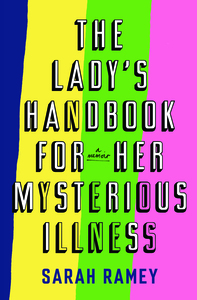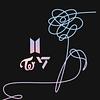Take a photo of a barcode or cover
emotional
informative
inspiring
reflective
sad
medium-paced
I checked this book out with my best friend in mind, and very quickly saw three of my sisters, another friend, coworkers, and even myself in the description of WOMI.
This book is so important. There were a few small things I didn't necessarily agree with but then the author circled back and clarified, and it clicked. We all have misconceptions and biases and prejudices toward others, and toward ourselves. Learning how to advocate for my own health is an opportunity for growth that I have yet to feel truly grateful for, even though I fully comprehend the ways it's made me better. This book, and the authors life tale, is a story of searching, a story of pain and misunderstanding, of being left behind and overlooked... but it's also a story of self discovery and fighting for our communities. A story of hope. And I recommend it to everyone.
I will mention: I hate the description of the book. (This is not a criticism of the book or author but I want to add some stuff here for those who might just read the description or the first bit of the book, and feel like I did at first) The description doesn't summarize the book all that badly, but it takes what she said about doctors dismissing her and not listening to her, and changes that into "they thought she was crazy". I hate this because I AM, arguably, clinically crazy. I very much dislike the phrase "all in her head". Not because it's unfairly putting down the patient (which it is) but mainly because it strongly implies that psychological maladies are somehow less-- less serious, less urgent, less physical, less believable, less important, less painful. It is, obviously, silly to say that a broken axle on a car is an engine problem. But the engine runs the car and isnt underestimated. I hope that anyone with psychological symptoms can also see themselves as WOMI/MOMI. I see myself, just like the author, as level 4-5 depending on the day or week or month. And I do not have a physcial mysterious illness. I dont have an auto immune disease, or a parasite, or fybromyalgia or SIBO or POTS or chronic pain. But my body is attacking itself and I am often dismissed by doctors who have said "perfection is the enemy of good" (translate: you're not dying so deal with it) The brain is arguably the area that gets the most abuse and sickness in a person's lifetime and has the most serious issues. It's clear that the brain is part of the body and psychological and physical symptoms go hand in hand. The author does a good job of mentioning that often a patient can tell if their problem originates in brain or body, and should be trusted. But many symptoms mentioned of the WOMI are caused by psychological factors (not even gonna bring up eating disorder stats, when speaking of gut issues, but MANY ED patients regularly and compulsively lie to their doctors and the doctors who blatantly accept these lies are doing more a disservice than those who look into it for themselves imo) Since she writes of her own struggles which don't include much for psychological diagnoses, I wanted to include these thoughts.
Just because depression, anxiety, ED'S, and other psychological problems together affect nearly the entire population doesn't mean that a doctor should prescribe an antidepressant or sedative to every patient with nonspecific complaints and move on. But it isn't always entirely off the point to look into brain chemistry when experiencing physcial symptoms, and doctors who do so are not bad doctors. Of course patient history, symptoms, and responses to medication should be the first indications, not statistics. But the main thing I want to say that the book does not, is that patients who experience these psychological problems have the same "journey in" as other WOMI's and may have just as much a struggle getting a real solution. If this is you, I see you. I hear you.
This book is so important. There were a few small things I didn't necessarily agree with but then the author circled back and clarified, and it clicked. We all have misconceptions and biases and prejudices toward others, and toward ourselves. Learning how to advocate for my own health is an opportunity for growth that I have yet to feel truly grateful for, even though I fully comprehend the ways it's made me better. This book, and the authors life tale, is a story of searching, a story of pain and misunderstanding, of being left behind and overlooked... but it's also a story of self discovery and fighting for our communities. A story of hope. And I recommend it to everyone.
I will mention: I hate the description of the book. (This is not a criticism of the book or author but I want to add some stuff here for those who might just read the description or the first bit of the book, and feel like I did at first) The description doesn't summarize the book all that badly, but it takes what she said about doctors dismissing her and not listening to her, and changes that into "they thought she was crazy". I hate this because I AM, arguably, clinically crazy. I very much dislike the phrase "all in her head". Not because it's unfairly putting down the patient (which it is) but mainly because it strongly implies that psychological maladies are somehow less-- less serious, less urgent, less physical, less believable, less important, less painful. It is, obviously, silly to say that a broken axle on a car is an engine problem. But the engine runs the car and isnt underestimated. I hope that anyone with psychological symptoms can also see themselves as WOMI/MOMI. I see myself, just like the author, as level 4-5 depending on the day or week or month. And I do not have a physcial mysterious illness. I dont have an auto immune disease, or a parasite, or fybromyalgia or SIBO or POTS or chronic pain. But my body is attacking itself and I am often dismissed by doctors who have said "perfection is the enemy of good" (translate: you're not dying so deal with it) The brain is arguably the area that gets the most abuse and sickness in a person's lifetime and has the most serious issues. It's clear that the brain is part of the body and psychological and physical symptoms go hand in hand. The author does a good job of mentioning that often a patient can tell if their problem originates in brain or body, and should be trusted. But many symptoms mentioned of the WOMI are caused by psychological factors (not even gonna bring up eating disorder stats, when speaking of gut issues, but MANY ED patients regularly and compulsively lie to their doctors and the doctors who blatantly accept these lies are doing more a disservice than those who look into it for themselves imo) Since she writes of her own struggles which don't include much for psychological diagnoses, I wanted to include these thoughts.
Just because depression, anxiety, ED'S, and other psychological problems together affect nearly the entire population doesn't mean that a doctor should prescribe an antidepressant or sedative to every patient with nonspecific complaints and move on. But it isn't always entirely off the point to look into brain chemistry when experiencing physcial symptoms, and doctors who do so are not bad doctors. Of course patient history, symptoms, and responses to medication should be the first indications, not statistics. But the main thing I want to say that the book does not, is that patients who experience these psychological problems have the same "journey in" as other WOMI's and may have just as much a struggle getting a real solution. If this is you, I see you. I hear you.
Graphic: Chronic illness, Emotional abuse, Misogyny, Physical abuse, Sexism, Suicidal thoughts, Medical content, Grief, Medical trauma, Gaslighting
very gendered language threw me off. felt very icky only made it a couple chapters
challenging
emotional
reflective
tense
slow-paced
I’m so frustrated on behalf of the author, and this story is representative of the frustrations women face to get diagnoses. Parts of it feels like running in a circle, not going anywhere, and I think the vulnerable narrative quality is effective if slow.
It’s frustrating however to have someone continue to ask “why weren’t these people having autoimmune disease 100 years ago or in developing countries” … because they died. The mortality rate for women without antibiotics has always been high and people regularly used to die in their early 30s from random sepsis. It feels a little short sighted and like someone’s personal doom spiral trying to make sense of her illness. (Which again, I do get.)
It’s frustrating however to have someone continue to ask “why weren’t these people having autoimmune disease 100 years ago or in developing countries” … because they died. The mortality rate for women without antibiotics has always been high and people regularly used to die in their early 30s from random sepsis. It feels a little short sighted and like someone’s personal doom spiral trying to make sense of her illness. (Which again, I do get.)
Graphic: Eating disorder, Suicidal thoughts, Medical trauma
emotional
funny
informative
inspiring
reflective
fast-paced
Must read!
challenging
dark
emotional
sad
tense
slow-paced
This book infuriated me on behalf of the author. It echoed so many of the things I've heard from clinicians who didn't know what they didn't know and couldn't fathom that there is, in fact, anything they lack in terms of their knowledge. The problem must clearly lie with the patient. No matter what. It also validated so many of the feelings I've had bouncing from jerkface doctor to ignorant doctor, and confirmed that there is no one stop shopping when it comes to chronic illness. We're all different. But we're all worthy of care and good health.
emotional
hopeful
informative
inspiring
reflective
slow-paced
Beautiful. Incisive. Potentially life-changing for anyone with symptoms they do not fully understand or for anyone who has been told it's all in their head.
Graphic: Chronic illness, Mental illness
medium-paced
Very relatable to my story but nothing particularly struck me. I appreciated the narration and story telling but it was just too long and slow for me.
Sometimes you come across a book at just the right time, and it feels life-changing. I really loved this book. This is probably the best book about chronic illness I have ever read, and I have read a lot. I appreciated that Ramey wasn't trying to sell me anything. She simply explains what she has researched, what she knows to be true, and how it adds up to the big picture in her mind. While there were definitely parts that didn't speak to me, there were so many more parts that did. I think the best part is that Ramey really acknowledges the reader, and proposes new ways of thinking about chronic illness, without pushing it down your throat like many other books try to do. Now I want every woman (and most of the men) in my life to read this book!






